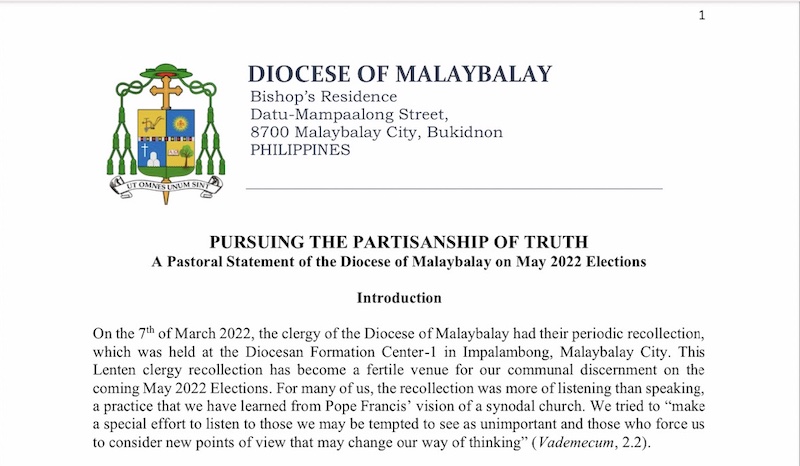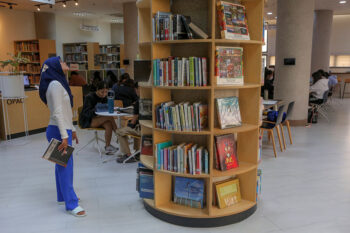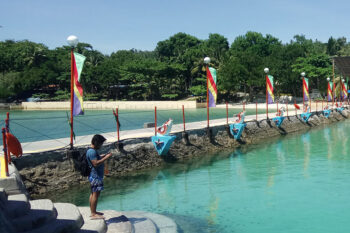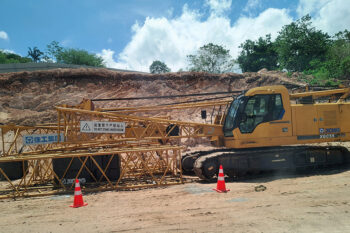PURSUING THE PARTISANSHIP OF TRUTH
A Pastoral Statement of the Diocese of Malaybalay on May 2022 Elections
INTRODUCTION
On the 7th of March 2022, the clergy of the Diocese of Malaybalay had their periodic recollection, which was held at the Diocesan Formation Center-1 in Impalambong, Malaybalay City. This Lenten clergy recollection has become a fertile venue for our communal discernment on the coming May 2022 Elections. For many of us, the recollection was more of listening than speaking, a practice that we have learned from Pope Francis’ vision of a synodal church. We tried to “make a special effort to listen to those we may be tempted to see as unimportant and those who force us to consider new points of view that may change our way of thinking” (Vademecum, 2.2).
While we were reflecting on the coming Elections in May, the results of the recent survey conducted by the Social Weather Stations (SWS) reveal that “40% of Filipinos say their quality of life has worsened.” The ongoing COVID-19 pandemic must have contributed to this depressing scenario. In Mindanao, while the real threat of climate emergency continues, the victims of Super Typhoon Odette have not yet fully recovered. The recent attack of Russia against Ukraine and the impending rising inflation in Japan and other economies where our country has trading relationships will greatly bring more deterioration in our quality of life, especially those who are already in the state of extreme poverty.
Against this backdrop, the upcoming Elections in May 2022 is extremely crucial. We must elect leaders who are competent to address the complex challenges that our country is facing. How will we empower the voters, especially those in the D and E levels of our society? There is a grapevine information that there are candidates who would be willing to pay between Php 3,000 and Php 5,000 per voter in these elections. Due to their helplessness, our poor brothers and sisters are deeply vulnerable to the perennial problem of vote buying. They need to be prioritized in our works of political empowerment.
THE PRESENT POLITICAL CLIMATE
The Threat of the Pandemic of Lies
We are aware of the existence of troll farms that contribute to the “‘pandemic of lies,’ especially in the social media.” The Catholic Bishops’ Conference of the Philippines (CBCP) is “appalled by the blatant and subtle distortion, manipulation, cover-up, repression and abuse of the truth, like: historical revisionism – the distortion of history or its denial; the proliferation of fake news and false stories; disinformation – the seeding of false information and narratives in order to influence the opinion of the people, to hide the truth, to malign and blackmail people” (CBCP, “The truth will set you free”, 2022). It is unfortunate that many of our voters appear to be willing victims of this complex “structure of lies,” which would take years for them to be awakened to truth.
Priests and Religious Endorse Candidates Publicly
Many of us were shocked to hear about the increasing number of Catholic priests who publicly endorsed their candidates in response to the ‘pandemic of lies.’ We were surprised to see the domino effect that is happening within the Church as many of our religious congregations, lay movements, religious organizations and Catholic schools all over the country have openly expressed their statement of full support for particular candidates. These contagious endorsements threaten the other political candidates who perceive this phenomenon as a violation of the separation of Church and State.
Difference in Understanding of What the Church Is
Some people have said that they were offended to see that the church has been used as a venue for activities related to politics, which they considered to be sacrilegious and disrespectful. Related to this, it became a trending in the social media when some clerics of our diocese controversially used pink stoles (liturgically appropriate only during Gaudete and Laetare Sundays) to bless the particular candidates inside the Cathedral church. Both cases clearly reveal that we have a different theological understanding of the Church.
Diverse Responses to Politics
There is a range of Christian responses to politics: (1) those who do not get involved in politics because they see it as a dirty game and “a distasteful word, often due to the mistakes, corruption and inefficiency of some politicians” (Fratelli Tutti, #180); (2) those who have personal preferences in politics but opt to remain neutral and non-partisan; (3) those who are non-partisan but not neutral in matters of faith and moral issues; and (4) those who are partisan and not neutral in matters of faith and moral issues.

POLITICAL EMPOWERMENT IN THE LIGHT OF FAITH
Pursuing the Partisanship of Truth
In our judgment, the truth is both a common good and a Gospel value. Truth is at stake today. Together with the CBCP, “we are alarmed by this distortion of the truth of history and the attempt to delete or destroy our collective memory through the seeding of lies and false narratives.” In response, it is a Christian imperative that “we favor none but the truth.” Following the partisanship of Jesus Christ, we “stand up for truth” in the face of the ‘pandemic of lies.’ “Let us not give up on our search and defense for truth … who is none other than Jesus” (CBCP, “The truth will set you free”, 2022).
Christians cannot remain neutral or silent when truth is at stake. Our faith compels us to be bias for the truth. This makes us morally partisan. We have the moral obligation and religious duty to protect the truth from blatant distortions and malicious manipulations. To you, who adamantly choose to remain as prisoners of lies, we earnestly pray for your eventual conversion: that “you will know the truth, and that truth will set you free (John 8: 32).
The Meaning of the Separation of Church and State
There is no law that prohibits the Church from meddling in politics. In fact, the separation of Church and State, as provided in the 1987 Philippine Constitution (article II, section 6), simply means two things: on one hand, religions should be given freedom to exercise their beliefs; on the other hand, the State authorities should not favor one religious group over another, especially in the disposition of public funds. In both cases, only the State can possibly violate this constitutional provision.
Moreover, there is no law that prohibits the clerics (i.e., bishops, priests and deacons) from engaging in principled partisan politics. It is the Catholic Church, through the Code of Canon Law, that forbids them from playing “an active role in political parties” (Canon #287, §2). Lay members of the Church, including nuns and seminarians, are not included in this canonical prohibition. In normal situations, Canon Law prohibits the clerics from assuming “public offices which entail a participation in the exercise of civil power” (Canon #285, §3). However, in certain cases, they can “have an active part in political parties … [if], in the judgment of competent ecclesiastical authority, the protection of the rights of the Church or the promotion of the common good requires it” (Canon #287, §2).
The Need for a Renewed Understanding of the Church
Let us depart from an outdated ecclesiology that falsely identifies the Roman Catholic Church with the hierarchy (i.e., ordained ministers: pope, bishops, priests, and deacons)—as though the laity are not members of the church. We need to correct the erroneous equation that many people tend to give between the Church of Christ and the Roman Catholic Church—as though the non-Catholic churches are not churches themselves. The Second Vatican Council teaches that the Church of Jesus Christ “subsists in the Catholic Church” (Lumen Gentium #8) without denying its mysterious presence in other authentic Christian communities.
Moreover, we need to embrace the renewed understanding of the Church as “People of God” (Populus Dei), which is a powerful biblical image (see Exodus 6:6; Ezekiel 11:19-20; 1 Peter 2:9-10; Galatians 6:6) that embraces all people who are gathered together as a community by God’s gracious election and mercy. In this light, the members of the Church of Christ do not just constitute the clergy and the laity but all the baptized Christians—including the baptized “non-Catholic” Christians—who “in some real way joined to us in the Holy Spirit” (Lumen Gentium #15).
In light of this updated [Vatican II] ecclesiology, it would be theologically inconsistent for some people to claim that they are deeply insulted by the “sacrilegious” and disrespectful activities done inside the church while remaining grossly apathetic with the rampant injustices and violence suffered by the poor members of the Church, the People of God. In our diocese, the concrete faces of oppressed people are the Lumads. Like any other members of the church, they also equally form part of the mystical Body of Christ and are included in “a portion of God’s people entrusted to a bishop to be shepherded by him with the cooperation of the presbytery” (Christus Dominus #11). As St. Paul reminds us: “you are the temple of God, and … the Spirit of God dwells in you” (1 Cor 3:16; cf. 1 Cor 6:19).
A Renewed Appreciation of Politics
To bring us to “a better kind of politics,” Pope Francis proposes to describe politics as “a lofty vocation and one of the highest forms of charity, inasmuch as it seeks the common good” (Fratelli Tutti, #180). Thus, non-involvement in politics is not a sound Christian option. In fact, for Pope Francis, “a good Catholic meddles in politics, offering the best of himself/herself, so that those who govern can govern” (“Daily Homily at Santa Marta,” Sept. 16, 2013). Liberative engagement in politics, therefore, is part of our Christian vocation to love our neighbor as ourselves (Mark 12:31) and an important way of exercising our “political love”—a transformative love “that seeks to build a better world” (Fratelli Tutti, #181).
Our bishops in the Philippines strongly encourage the Christian lay people to engage in ‘principled partisan politics’—a liberative option that is not neutral in matters of faith and morals. “This means that they can campaign for good candidates as an exercise of their Christian faith” (CBCP, “Seek the Common Good,” 28 January 2019). They are also encouraged to run for public office so that they can exercise their distinct political role “in the just ordering of society.” The Church teaches that “both clergy and laity must be involved in the area of politics when moral and Gospel values are at stake” (PCP II, #344).
OUR TRANSFORMATIVE OPTIONS TOWARDS A BETTER POLITICS
In light of the current Catholic social teaching, we (clerics) should not use the pulpit to endorse or denounce any candidate by name. However, “we can use the pulpit to read pastoral guidelines on election and deliver homilies related to the moral dimension of politics,” since this is a constitutive dimension of “our prophetic duty to evangelize and form conscience” (Jose Mario Bautista Maximiano, “Pastoral Guidelines on 2022 PH Elections”).
Our distinct role as clerics is to provide the laity with moral and spiritual guidance, “in accord with our mission of proclaiming the truth from our faith” (CBCP, “The Truth shall set you free,” 2022). We accompany their discernment process, not by dictating on them our own choices, but by empowering them to listen to their conscience and by enabling them decide based on their capacity to discern what is true and good.
We encourage everyone to participate in our elections with prudence and faithfulness. To reach out in the grassroots level of society, it is imperative for us to accompany the Basic Ecclesial Communities as Circles of Discernment to help them determine who among the candidates can truly respond to our societal challenges in accordance with the tenets of our faith and morals.
We invite more non-partisan volunteers who, even if they have made their personal choices, would be willing to assist the Parish Pastoral Council for Responsible Voting (PPCRV) in its task of protecting the integrity of the entire electoral process. Let us support its material needs and relevant activities without jeopardizing its non-partisan status and non-neutrality in matters of faith and morals.
In solidarity with our Filipino brothers and sisters, who belong to diverse religions, we pray that we may become one people of God, with selfless and collective political conviction in achieving our common desire for a bright future of our beloved country.
To end this pastoral statement, we pray that we experience conversion in this Season of Lent. As we prepare ourselves to celebrate the Paschal Mystery of our Lord, we hope that these forty days of Lent will allow us to encounter God in silence and in prayerful discernment for what is good for all, especially for the poorest among us. Together with Pope Francis, in this Lenten Season, “Let us not grow tired of praying . . . Let us not grow tired of uprooting evil from our lives. . . Let us not grow tired of doing good in active charity towards our neighbours” (“Message of His Holiness Pope Francis for Lent 2022”).
For the Clergy of the Diocese of Malaybalay,
MOST REV. NOEL P. PEDREGOSA, D.D.
Bishop of Malaybalay
March 13, 2022
Second Sunday of Lent








